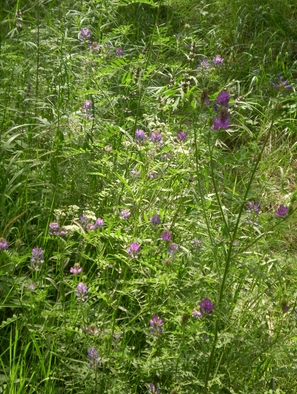 Astragalus
complanatus. 沙
苑 子
Shā yuàn zǐ
Flatstem milkvetch seed Family:
Leguminosae
Astragalus
complanatus. 沙
苑 子
Shā yuàn zǐ
Flatstem milkvetch seed Family:
Leguminosae
PART USED: Seed
FUNCTIONS
GROUP: Replenishing Yang.[1]
1. Tone up Kidney, solidify semen.[1]
2. Nourish Liver, sharpen vision.[1]
PREPARATIONS: 9-15 g.[2]
